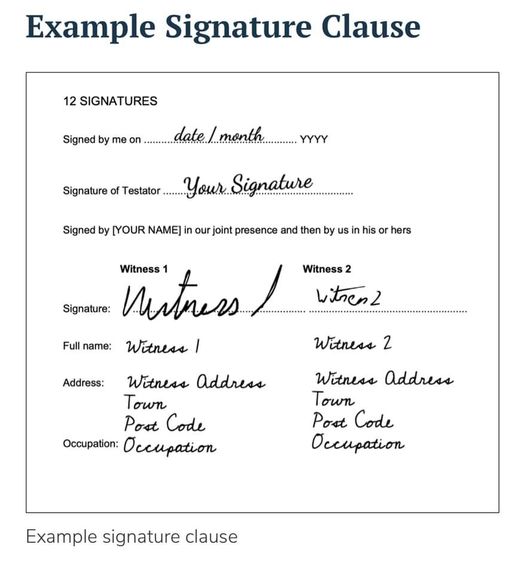Witnessing a person’s signature on a legal document is an important step in ensuring the document is valid and enforceable. The witness is needed to confirm that the correct party has signed the agreement and no fraud has occurred, such as someone signing the agreement on another person’s behalf. In many circumstances in Uganda, it is legal requirement. This article will explain the essential elements of being a witness and how you can witness documents correctly.
What Documents commonly require a Witness Signature?
In Uganda, many legal documents require that an individual’s signature is witnessed by another person. These documents include:
• general contracts;
• agreements;
• deeds;
• guarantees;
• mortgage documents; and
• Other finance agreements.
In some cases, the law will require certain documents, like statutory declarations or affidavits in legal proceedings, to have the signature witnessed by a person with specific qualifications (an authorised witness). There are also specific requirements for the witness signature on will documents such as standard wills or powers of attorney.
Who Can Witness a Signature?
In general, a witness must:
• be over 18 years of age;
• know the person whose signature they are witnessing;
• not be under the influence of drugs;
• be of sound mind and mental capacity;
• not be a party to the document or have any financial interest in it; and
• not be a beneficiary if the document is a trust or will
Who is an Authorised Witness?
Certain legal documents, such as statutory declarations and affidavits, require an ‘authorised’ witness to sign them in Uganda who usually include a:
• lawyer or advocate;
• justice of the peace;
• Notary Public;
• senior officer of the court;
• Other professionals including a doctor, an accountant, senior police officer or pharmacist.
• Bank Manager
Steps to Correctly Witness a Signature
When witnessing a signature, the following requirements apply. You must:
1. ensure the person signs the document in front of you. It is not acceptable for them to provide you with a signed document that someone else has already signed and ask you to witness it;
2. not witness an electronic signature. The person must sign the document in front of you in real time. Physical presence is necessary;
3. use blue ink or black ink, as the original documents will scan more clearly for electronic versions of the document;
4. check the person has signed where required on all pages of the document;
5. initial any changes that the person makes after signing the document;
6. state that you have known the person signing for at least one year, or have taken steps to verify their identity, such as viewing their signature on a current driver’s licence ; and
7. check what additional details you need to provide when witnessing, as set out on the document and provide them correctly. This may include the date, your occupation and address.
How Do I Verify the Identity of the Person Signing a Document?
If you have known the person signing the document for less than a year, you should take steps to verify their identity. The requirements of this may vary depending on the type of document being signed.
For example, some real property or finance documents may have stricter requirements to provide details of verification documents.
Therefore, you should check the document before you witness the signature. In general, verification documents should include a primary identification document such as a current:
• national identification
• driving permit;
• passport;
Can a Family Member Witness a Signature?
There is no general rule that says a family member or spouse cannot witness a person’s signature on a legal document, as long as you are not a party to the agreement or will benefit from it in some way. However, it is generally best to avoid it as it can raise perceptions of bias and questions about your credibility as a witness, even if your relative is a legal practitioner. It may also cause a court to question the enforceability of the legal document at a later date. Therefore, where possible, it is better for an independent, neutral third party to be the witness.
COVID-19 Laws about Witnessing
In Uganda, in response to the COVID-19 pandemic, there is need to make temporary Legal adjustments to allow the witnessing of documents by audio-visual link. This could allow legal documents to be signed before a witness in cases where the parties are in lockdown and are unable to meet in person. In general, this would involve the parties having a video call and the signing party positioning their camera so the other party can see them sign the document using a handwritten signature. They then scan and send the witness a copy of the signed document, and the witness signs a copy of this document. Any document signed this way would refer to the relevant legislation.
Key Takeaways
If someone asks you to witness their signature on a legal document, it is crucial you follow the right steps, or the whole document may be void. Therefore, it is a good idea to take your time to ensure:
• you are entitled to witness the signature in the circumstances;
• the document is signed correctly; and
• you have followed any witnessing requirements, such as checking the identification of the person signing if you have not known them for more than a year.
Frequently Asked Questions
Why do I need a witness to sign legal documents?
A witness is needed to confirm that the correct party has signed the agreement and no fraud has occurred. Therefore, without a witness, an agreement may not be enforceable.
Can a minor witness a signature?
No. A witness must be over 18 years old.
How is a witness signature important for evidence?
A witness’s signature can be useful for evidentiary purposes. If a party to the agreement later says they did not sign, the person who witnessed the party signing can be called to confirm it. The witness can confirm that the specific person signed and that that was the signature they made. If there are going to be witnesses:
• the contracting party must sign in the presence of the witness, and
• It must be possible to find the witness later.
For this reason, the name and contact details of the witnesses must appear on the agreement, in addition to their signature.
Compiled by:
nassuuna@nassuunaadvocates.co.ug
crop.consults@yahoo.com

